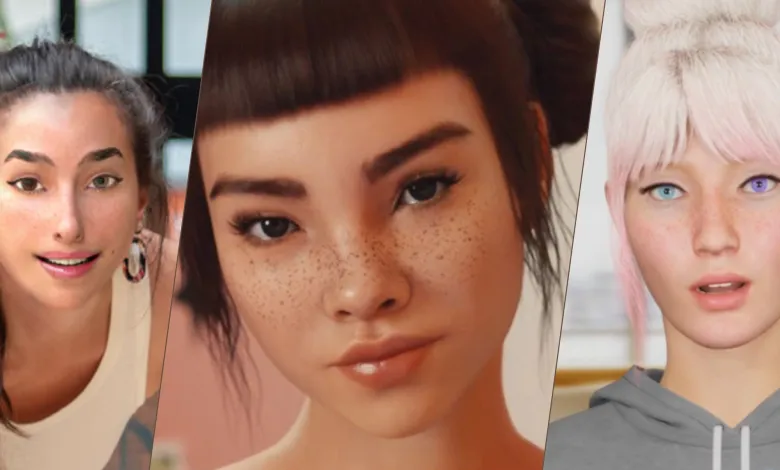
A new trend is taking over social media that’s blurring the lines between reality and virtual reality: AI influencers. These digital personas, created by artificial intelligence, are quickly becoming celebrities in their own right, with millions of followers and partnerships with major brands. As AI influencers gain traction, the question arises: Are these virtual stars the future of social media?
Who Are AI Influencers?
AI influencers are entirely computer-generated characters that interact with real people on social media platforms like Instagram, TikTok, and YouTube. Unlike traditional influencers, these virtual personalities are not based on real individuals, but are instead created and managed by teams of designers, developers, and AI engineers. They share content, promote products, and even engage in conversations with fans—all with no human behind the scenes.
One of the most famous AI influencers is Lil Miquela, a digital model and music artist who has amassed millions of followers on Instagram. Her posts range from fashionable photoshoots to music releases, and she even advocates for social causes. The level of detail in her virtual life is so sophisticated that it’s hard to distinguish her from real influencers.
The Technology Behind AI Influencers
At the heart of AI influencers is cutting-edge machine learning and deepfake technology. AI systems can generate lifelike avatars, create human-like voices, and simulate emotions and reactions in real-time. These virtual influencers can even evolve over time, becoming more complex and nuanced as they interact with their audience.
The power of AI in this space lies in its ability to analyze massive amounts of data and predict what kind of content will engage followers. Using algorithms, AI influencers can tailor their posts to align with trends, capture attention, and generate interaction. This makes them incredibly effective at driving brand awareness and creating viral content.
The Viral Appeal of AI Influencers
Why are AI influencers going viral in 2024? One reason is their ability to be perfect. They don’t have bad hair days or make awkward mistakes. Their content is meticulously crafted, always on-brand, and visually stunning. For companies, partnering with AI influencers offers a controlled environment where there’s no risk of a scandal or unpredictable behavior.
But it’s not just their flawless personas that attract followers it’s their intrigue. AI influencers offer a glimpse into a world where technology and humanity intersect in fascinating ways. Fans are captivated by the idea of interacting with characters that feel as real as celebrities, but without the limitations of human imperfection.
The Controversy: Is This Real Influence?
Despite their popularity, AI influencers raise serious questions about authenticity and ethics in social media marketing. How much of the content we see online is genuinely created by humans? As AI influencers grow more convincing, it becomes harder to distinguish between what’s real and what’s digital fabrication.
For some, this new wave of influencers feels deceptive. Are we being manipulated by an algorithm designed to sell us products? Can we trust these AI influencers to represent real human values and experiences, or are they just another tool for corporations to exploit?
On the other hand, there are those who embrace the evolution of virtual influencers. Some argue that it’s simply a natural progression of social media’s increasing reliance on technology and the digitalization of all aspects of life. After all, brands and consumers have long been drawn to polished, curated content. Virtual influencers, in their own way, represent the future of storytelling and marketing.

The Future of AI Influencers
As we head into the latter part of 2024, AI influencers are becoming a permanent fixture in digital culture. From fashion and beauty to music and gaming, these virtual celebrities are crossing into all sorts of industries. The next frontier? Metaverse integration. Imagine a future where AI influencers don’t just appear on your social media feeds but interact with you in immersive, virtual worlds.
In fact, the concept of AI influencers existing entirely within the metaverse is already in the works. Brands could soon sponsor virtual influencers to host events, create product experiences, and even live-stream their adventures across virtual realities.
Moreover, some companies are using AI-generated influencers to humanize their brand or promote ethical causes. AI influencers can be crafted with specific backstories, causes, or missions, allowing brands to create a persona that aligns perfectly with their values. This opens the door for greater creativity and a more tailored approach to marketing.
Conclusion: The Road Ahead for AI Influencers
The rise of AI influencers isn’t just a passing trend it’s a glimpse into the future of social media and digital marketing. As AI continues to advance, these virtual celebrities will only become more realistic, engaging, and influential. They represent a new era of online interaction, where the lines between reality and digital creation are increasingly hard to define.
Are AI influencers here to stay? As they continue to evolve, it seems likely that they will. Whether you love them or find them unsettling, the fact remains that these virtual personalities are reshaping how we view fame, influence, and digital culture in 2024.

